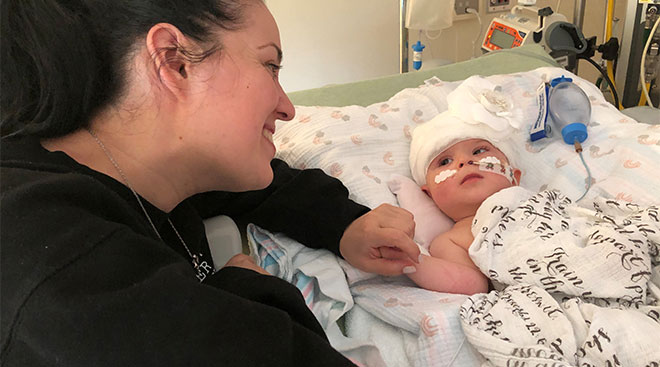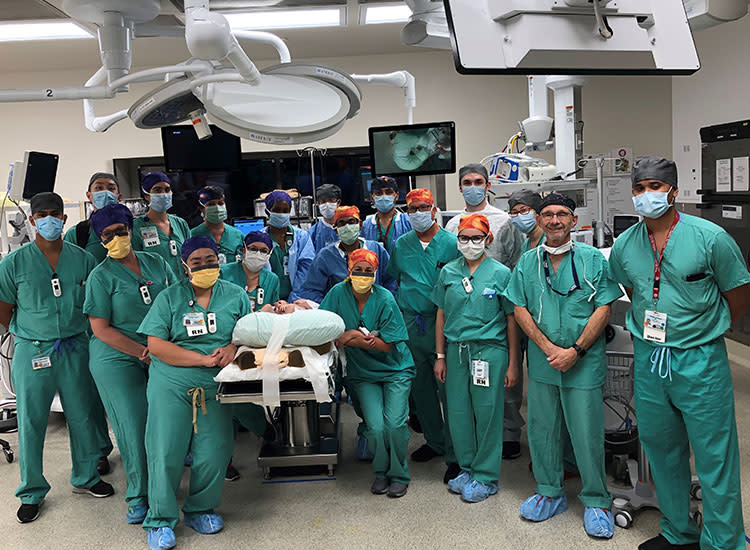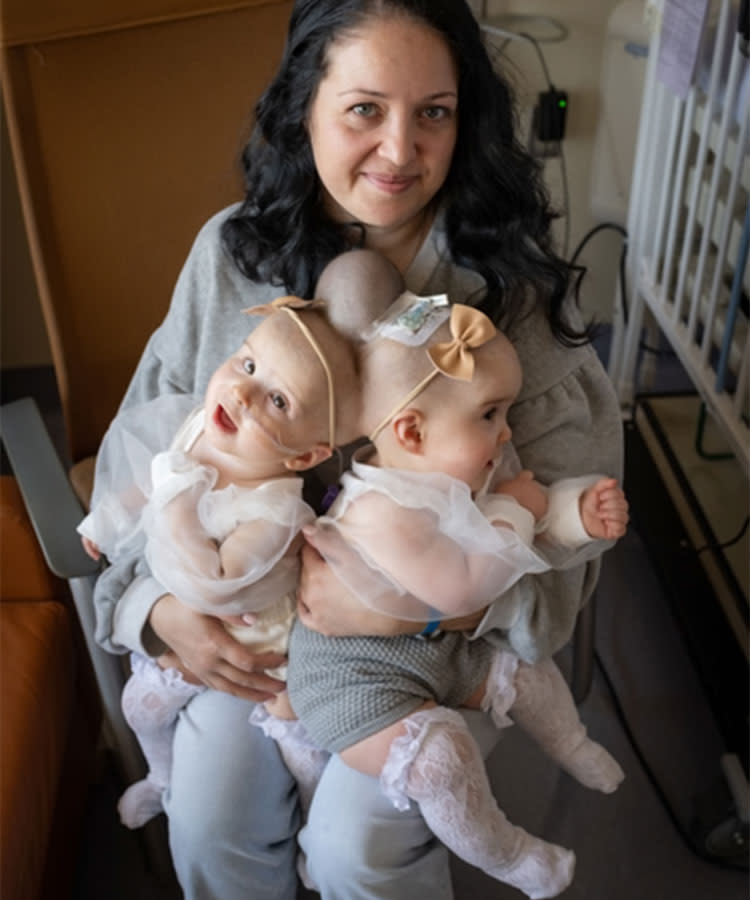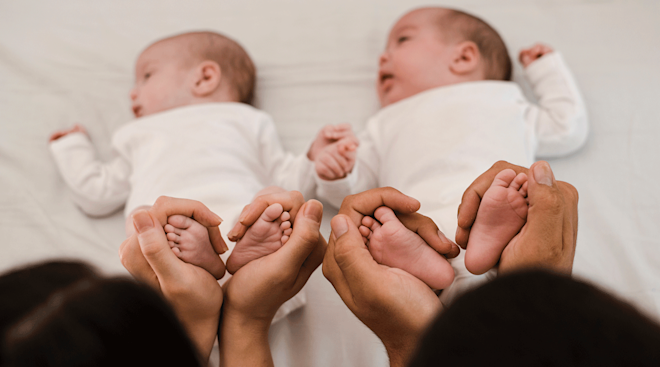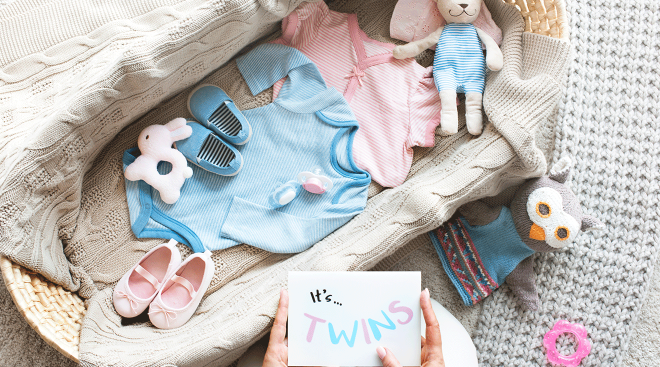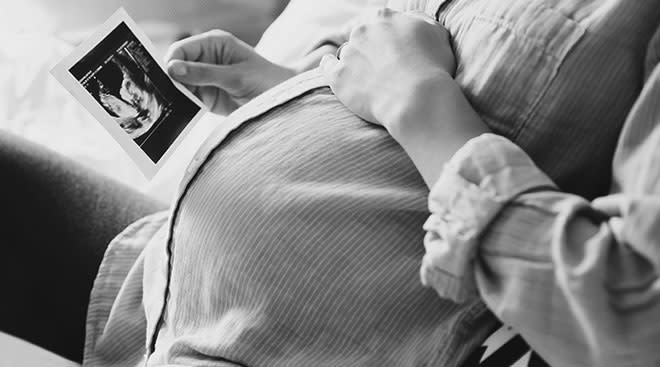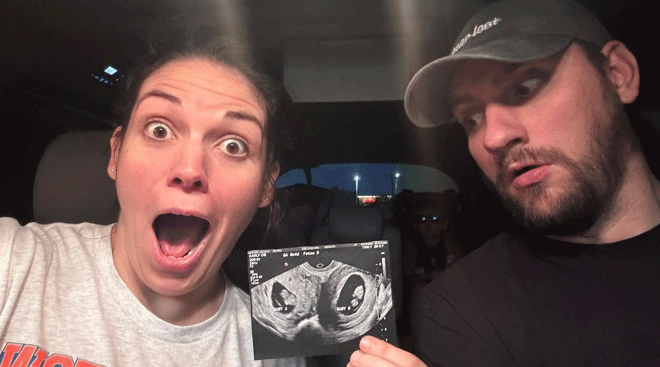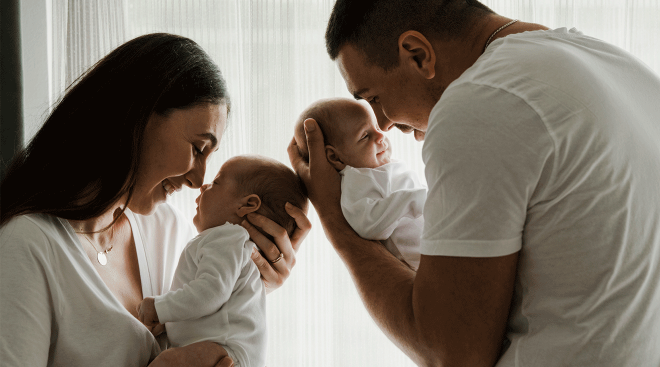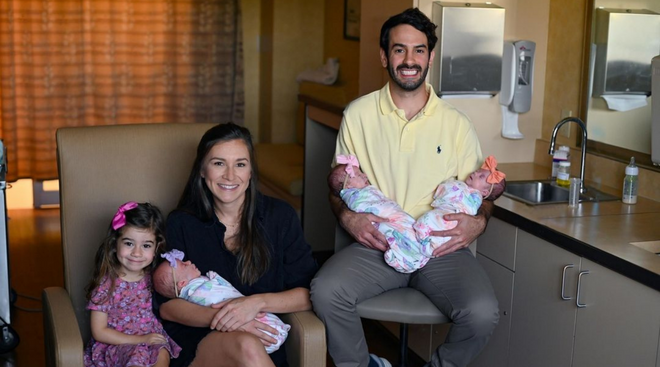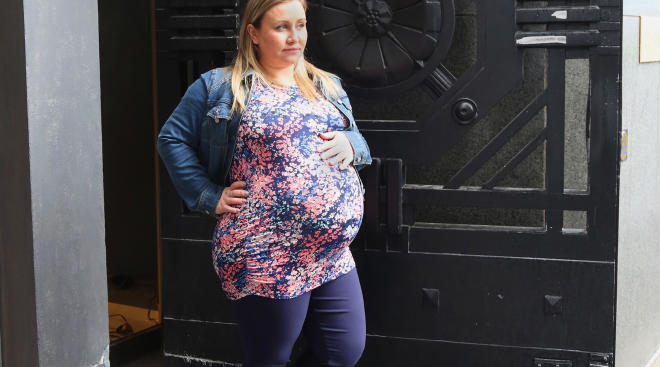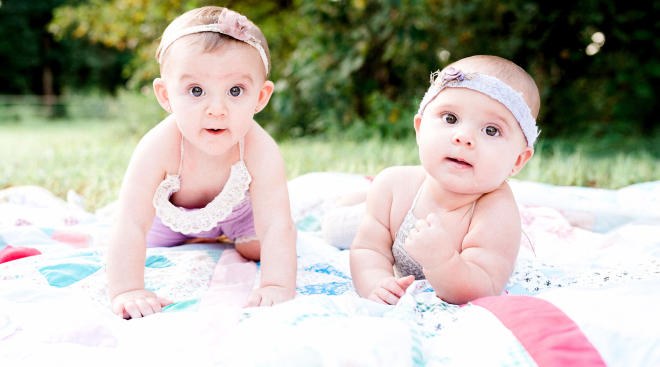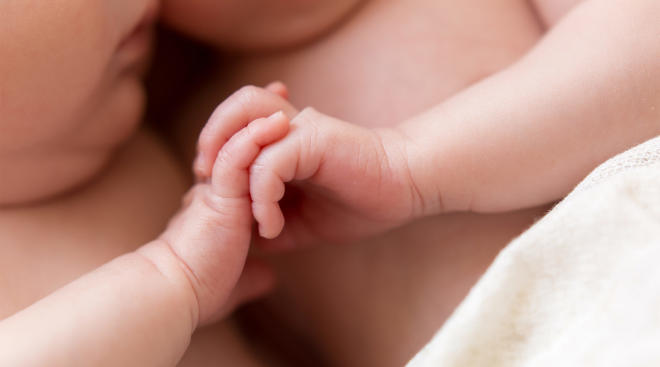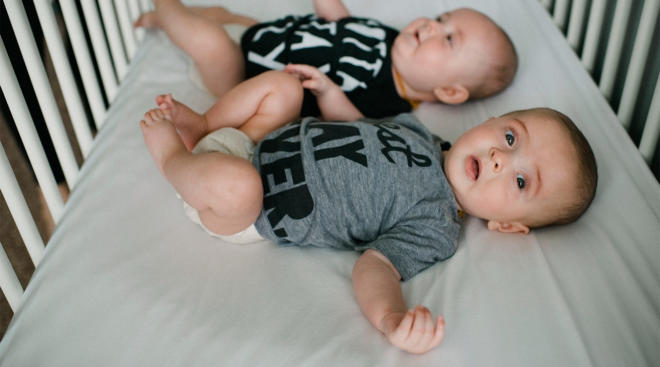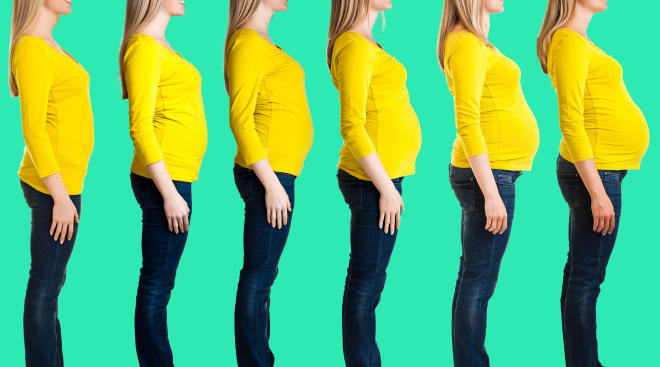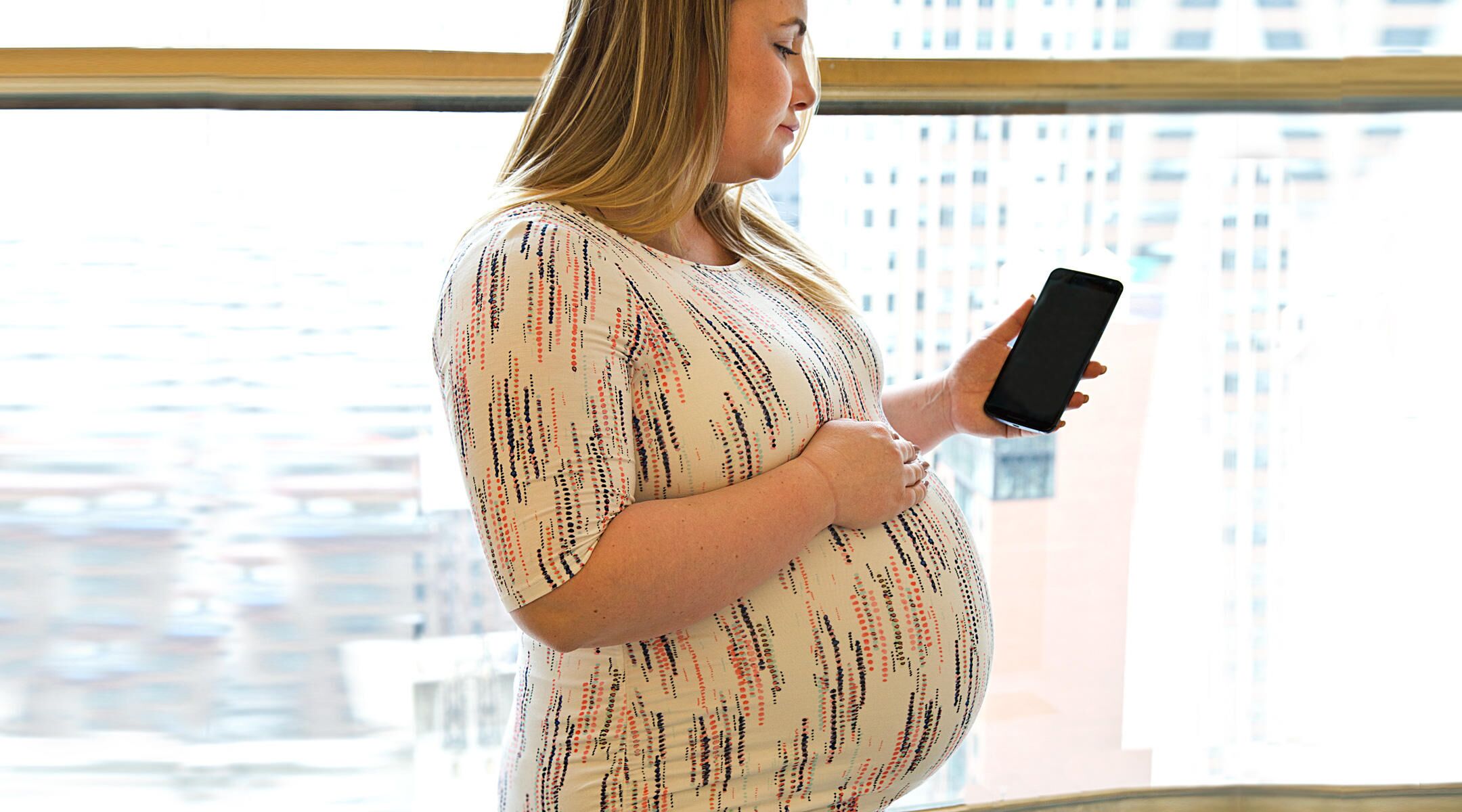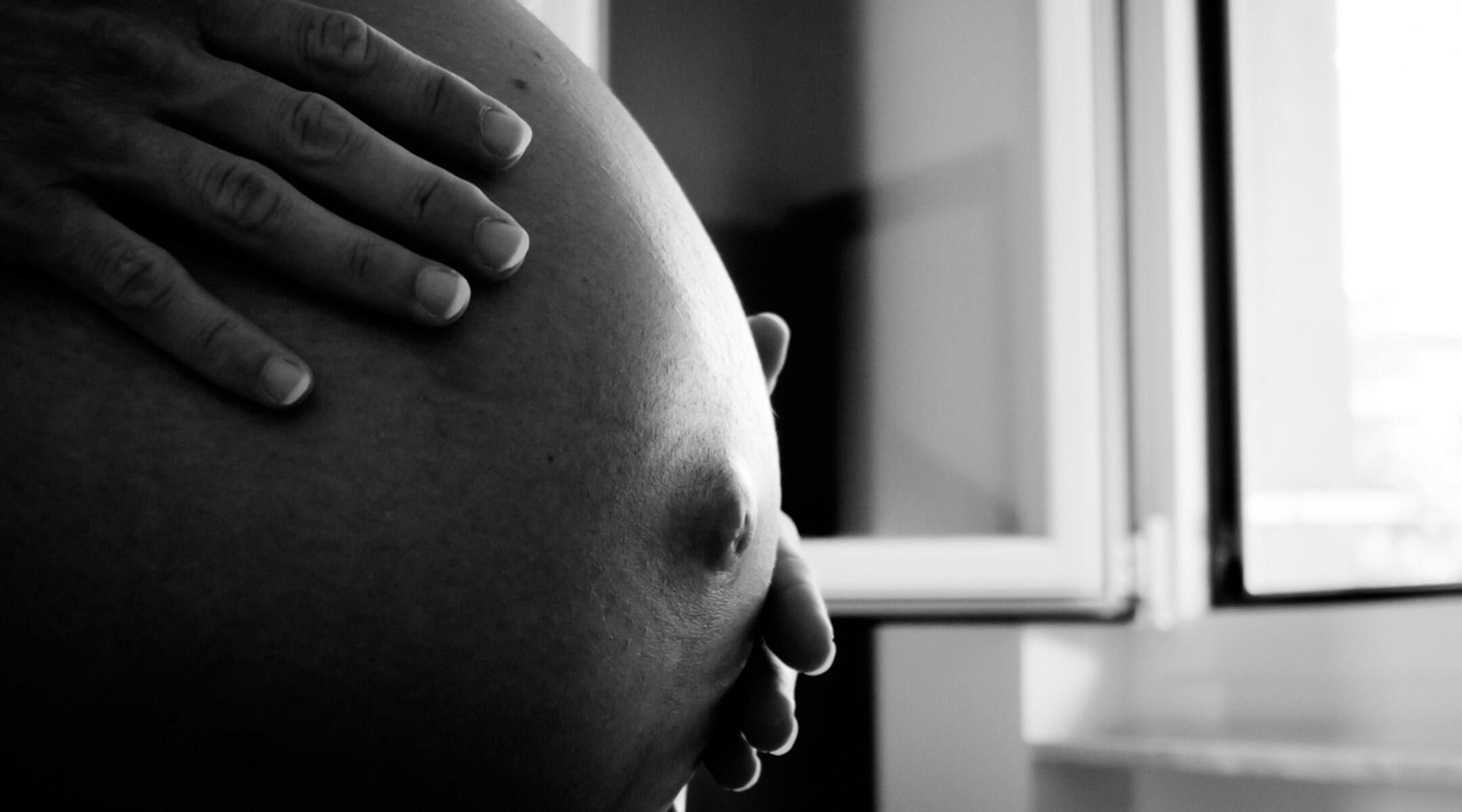Rare Set of Conjoined Twins Successfully Separated After 24-Hour Surgery
Liliya was told she was pregnant with conjoined twins at 11 weeks pregnant. Her two girls, Abigail and Micaela Backinskiy, were born on December 30, 2019. This past month, at 9 months old, the girls were successfully separated at UC Davis Children’s Hospital.
The 24-hour surgery ran from October 23 into October 24. Abigail and Micaela were craniopagus twins and born connected at the head. This is an extremely rare condition that affects 2 percent of all conjoined twins and approximately one in every 2.5 million births.
“This is a landmark surgery for us at UC Davis Children’s Hospital,” Michael Edwards, pediatric neurosurgeon with prior success separating conjoined twins and one of the leads on the surgery, said in a press release. “Abigail and Micaela are doing well and recovering in our Pediatric Intensive Care Unit, thanks to an amazing team effort dedicated to ensuring these very rare twins have the best shot at a healthy life ahead. We are honored to have helped with their birth, cared for them since, and to now give them the chance to live independent and separate lives.”
Liliya had been working with a team at UC Davis Fetal Care and Treatment Center throughout her pregnancy to prepare for possible risks during delivery, including compromised airways and collapsed lungs.
The twins were born on December 30, 2019 and went home after spending 7 weeks in the NICU. “We have felt so much support from staff. We have received so much help, so much advice. It has made us feel at home here,” Liliya also said in the release.
The surgeons chose to operate at 9 months because they were afraid to wait any longer. “As they get older, there are more risks of shared blood vessels and organs becoming larger or more entwined. The upcoming flu, COVID-19 and RSV season was also a concern,” chief of plastic surgery and lead plastic surgeon Granger Wong said.
The surgical team spent 10 months preparing for the surgery, tracking their growth with MRIs and CT scans, as well as performing house calls for checkups and keeping close contact with the family. During the surgery itself, the leads and their respective teams divided the care for the twins, using color coded surgical caps and masking tape for equipment to keep track of each.
The twins were finally and successfully separated at 3:28 a.m. “After 10 months of preparation, we were witnessing what we had all envisioned for the girls and we were overcome with emotion and joy,” Aida Benitez, Children’s Surgery Center nursing lead, said. “I will never see 3:28 on a clock again and not think of the moment that Abi and Mica became two separate babies.”
Rajvinder Dhamrait, director of pediatric anesthesiology, added, “We were fortunate that we had anesthetized the twins four times prior. It was flawless, with all contingencies covered.”
“Everything went well. It felt almost impossible to separate them, but God and the doctors and nurses at UC Davis made it possible. We are so thankful,” Liliya said.
Navigate forward to interact with the calendar and select a date. Press the question mark key to get the keyboard shortcuts for changing dates.

































